Ruizhe Cao
CMGAN: Conformer-Based Metric-GAN for Monaural Speech Enhancement
Sep 23, 2022
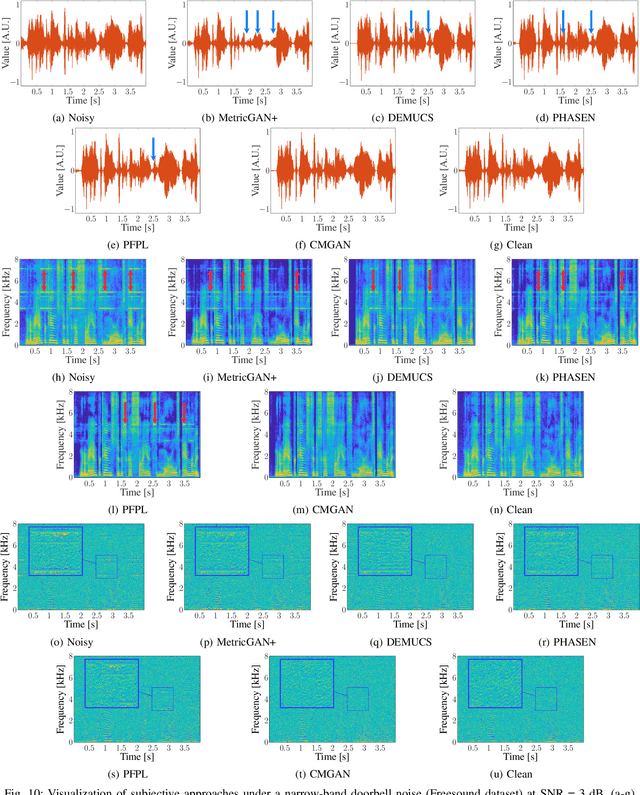
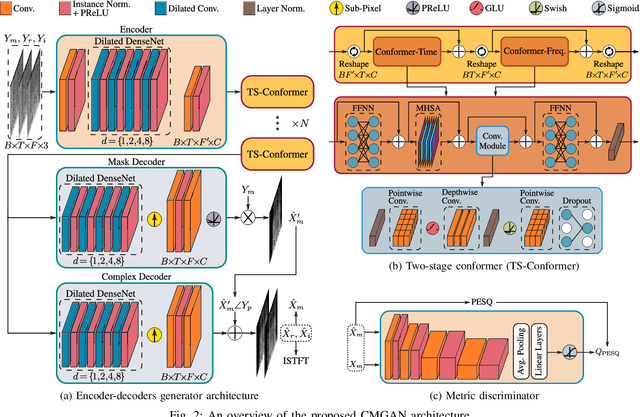
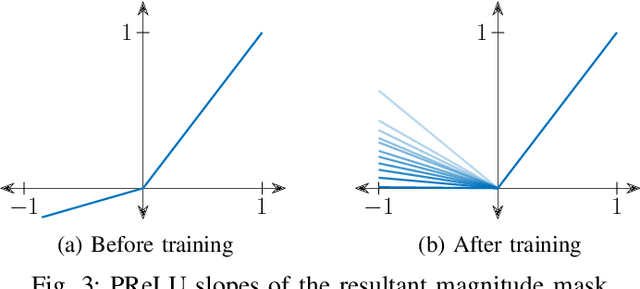
Abstract:Convolution-augmented transformers (Conformers) are recently proposed in various speech-domain applications, such as automatic speech recognition (ASR) and speech separation, as they can capture both local and global dependencies. In this paper, we propose a conformer-based metric generative adversarial network (CMGAN) for speech enhancement (SE) in the time-frequency (TF) domain. The generator encodes the magnitude and complex spectrogram information using two-stage conformer blocks to model both time and frequency dependencies. The decoder then decouples the estimation into a magnitude mask decoder branch to filter out unwanted distortions and a complex refinement branch to further improve the magnitude estimation and implicitly enhance the phase information. Additionally, we include a metric discriminator to alleviate metric mismatch by optimizing the generator with respect to a corresponding evaluation score. Objective and subjective evaluations illustrate that CMGAN is able to show superior performance compared to state-of-the-art methods in three speech enhancement tasks (denoising, dereverberation and super-resolution). For instance, quantitative denoising analysis on Voice Bank+DEMAND dataset indicates that CMGAN outperforms various previous models with a margin, i.e., PESQ of 3.41 and SSNR of 11.10 dB.
CMGAN: Conformer-based Metric GAN for Speech Enhancement
Mar 28, 2022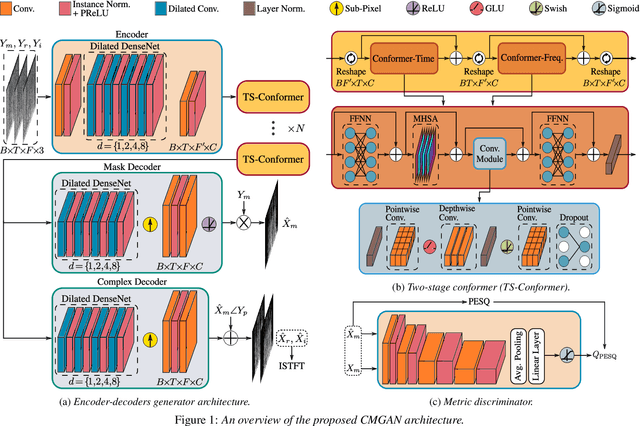

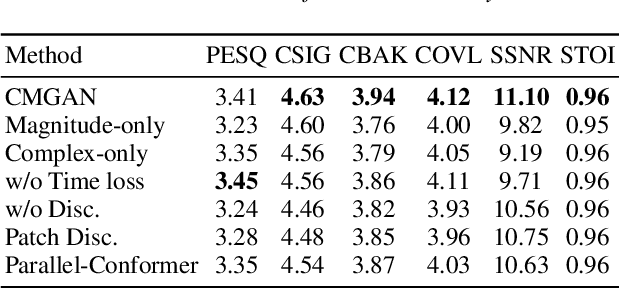
Abstract:Recently, convolution-augmented transformer (Conformer) has achieved promising performance in automatic speech recognition (ASR) and time-domain speech enhancement (SE), as it can capture both local and global dependencies in the speech signal. In this paper, we propose a conformer-based metric generative adversarial network (CMGAN) for SE in the time-frequency (TF) domain. In the generator, we utilize two-stage conformer blocks to aggregate all magnitude and complex spectrogram information by modeling both time and frequency dependencies. The estimation of magnitude and complex spectrogram is decoupled in the decoder stage and then jointly incorporated to reconstruct the enhanced speech. In addition, a metric discriminator is employed to further improve the quality of the enhanced estimated speech by optimizing the generator with respect to a corresponding evaluation score. Quantitative analysis on Voice Bank+DEMAND dataset indicates the capability of CMGAN in outperforming various previous models with a margin, i.e., PESQ of 3.41 and SSNR of 11.10 dB.
 Add to Chrome
Add to Chrome Add to Firefox
Add to Firefox Add to Edge
Add to Edge